It is a tragedy that has haunted and intrigued the world for over a century.
On April 15th, 1912, the 'unsinkable' RMS Titanic sank beneath the icy waters of the North Atlantic Ocean, taking with it the lives of over 1,500 people. The disaster has become part of our collective memory, immortalizing in its wake the stories of the passengers who were onboard on that horrible night.
From its construction in 1910, to its sinking two short years later, the Titanic was a marvel of engineering prowess. It was the largest ship ever built, and at the time, it was considered to be the very embodiment of modernity and luxury. As its passengers boarded for their journey from Southampton to New York City, they were unaware of what fate awaited them. For many, it would be their final voyage; for others, it would be the start of a new life.
I've always been drawn to the human side of historical events. For me, it's the stories of individuals and their vastly different experiences that bring history to life and make it relatable. The sinking of the Titanic is no exception.
When we face big tragedies like this one (or especially this one), it's easy to lose sight of the many names and faces behind the statistics. With the passage of time, the disaster has become a part of popular culture in almost a weird way. Movies have been made, and books have been written. But it's important to remember that behind the headlines and the iconic imagery, there were real people whose lives were forever changed by the tragedy. Each victim had a family, friends, dreams, and ambitions. Each had their own struggles and triumphs.
I was watching an episode of Tasting History the other day (which, by the way, I highly recommend). The show host, Max Miller, was recreating a meal from the Titanic's restaurant menu on the night of the disaster. During the episode, he shared the story of Charlotte Collyer, one of the passengers that were onboard and thankfully survived. It resonated very deeply and stayed with me.
Life on board
The Titanic was a ship unlike any other, and the people on board it were just as varied and unique. The passengers were a mix of people from all walks of life, with a wide range of social statuses and backgrounds. From wealthy first-class passengers to humble third-class passengers, the Titanic carried them all.
The differences between the first and second-class passengers on the ship were stark. First-class passengers enjoyed all the luxuries the Titanic had to offer, from fine dining and entertainment to opulent cabins and suites.

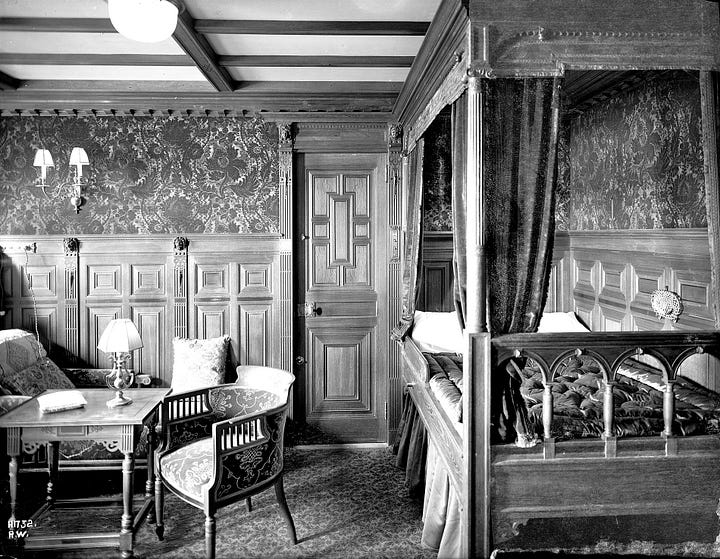
Second-class passengers had access to many of the same amenities, but the experience was not quite as lavish. They still enjoyed decent accommodations, and could still access well-designed communal spaces, such as a library and a smoking room.
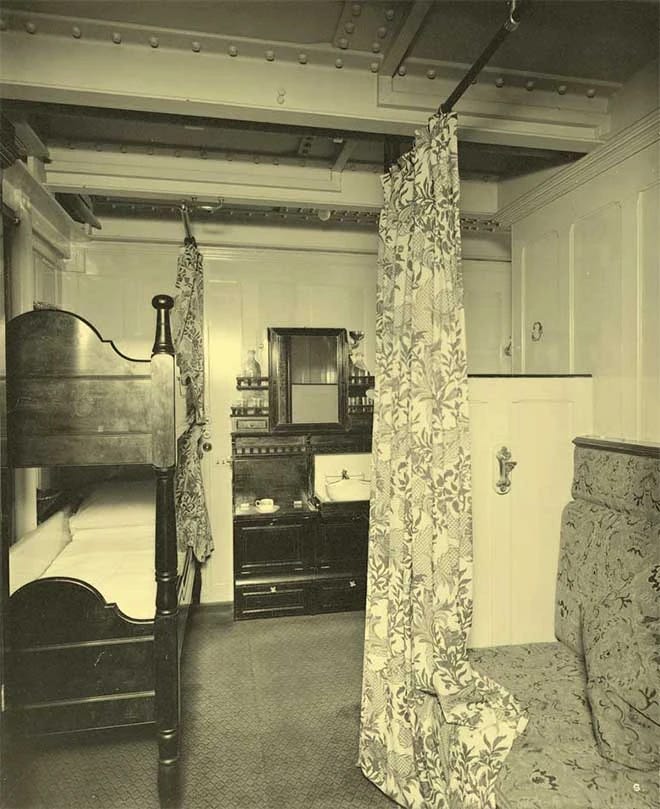
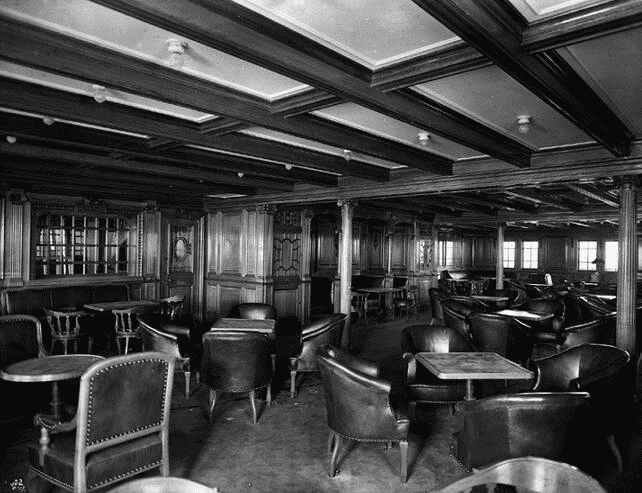
The third-class passengers, however, experienced a much different journey than the other two classes. Instead of enjoying the luxury of their surroundings, they were relegated to cramped and uncomfortable conditions, with little in the way of entertainment or fine dining. The voyage was also far more restrictive for them, as they were not allowed to mingle with the other classes and had limited access to certain parts of the ship. Dining arrangements were basic, albeit still superior to what many were accustomed to in their home countries.
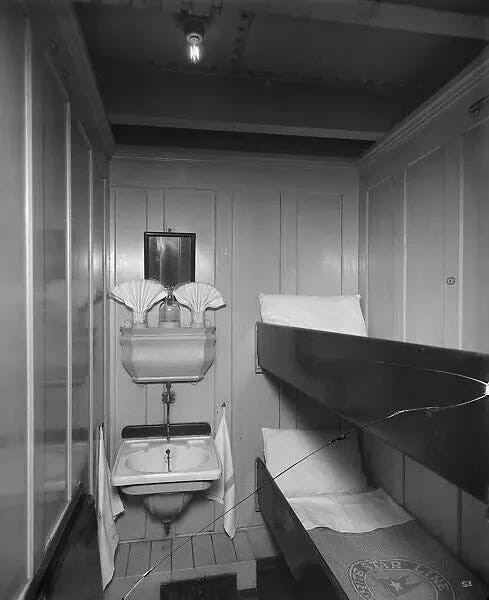

The Collyer family, accommodated in the second class, reveled in the wonders of the ship. Harvey Collyer, a devoted sexton at his local church and a grocer, his wife Charlotte Collyer, a skilled cook, and their 8-year-old daughter Marjorie Lottie, embarked on this voyage inspired by their friends who had made the journey several years before and achieved prosperity as farmers in Payette, Idaho, in the U.S. The Collyer family, who lived in Bishopstoke, Hampshire, England, felt encouraged and compelled. The glowing accounts of the American climate were particularly enticing for Charlotte, who had been diagnosed with tuberculosis.
When the decision was taken, they sold their store in Bishopstoke, bought a farm in the same valley as their friends, and jumped into the opportunity to uproot their lives and pursue a new beginning in America.
As their departure from their cherished community drew near, emotions ran high. Mrs. Collyer vividly described the emotional farewell held at their local church, where tearful embraces and heartfelt words mingled with a sense of both loss and anticipation:
"The day before we were due to sail (our neighbours) made much of us, it seemed as if there must have been hundreds who called to bid us goodbye and in the afternoon members of the curch arranged a surprise for my husband. They led him to a seat under the old tree in the churchyard and then some went up into the belfry and, in his honour, they rang all the chimes that they knew. It took more than an hour and he was very pleased. Somehow it makes me a little sad; (...) to me it was too much of a farewell ceremony."
Charlotte Collyer (the Semi-Monthly Magazine)
On the morning of the departure, on April 10, 1912, the Collyer family arrived in Southampton. Before boarding the ship, Mr. Collyer made a visit to the bank and retrieved their entire life savings.
Years later, Charlotte described the expectations she had at the time:
"Of the many shocking things that I remember in connection with the lost of the Titanic, there is one impression that will never leave me. It is the irony of the faith that I had in the big ship. “She is unsinkable,” I had been told, “she is the safest boat afloat.” I had never been on an ocean voyage, and I was afraid of the sea. But I listened to the people who said: “Take the new Titanic. She can not come to any harm. New inventions have made her safe; and then, the officers will be extra careful on her first trip.”
She also described her first impressions of the ship:
"The Titanic was wonderful, far more splendid and huge than I had dreamed of. The other craft in the harbor were like cockle-shells beside her, and they, mind you, were the boats of the American and other lines that a few years ago were thought enormous. I remember a friend said to me, just before visitors were ordered ashore: “Aren’t you afraid to venture on the sea?” But now it was I who was confident. “What, on this boat!” I answered. “Even the worst storm couldn’t harm her.”
“We can't describe the tables. It's like a floating town”
The Titanic offered a means of communication between passengers and their loved ones through written correspondence. On board the ship, passengers could take advantage of the available writing materials to compose letters, sharing their experiences and emotions with those waiting ashore.
In a letter to his parents, mailed from Queenstown, Harvey described the amazing experience he and his family were having:
"Titanic April 11th
My dear Mum and Dad
It don't seem possible we are out on the briny writing to you. Well dears so far we are having a delightful trip the weather is beautiful and the ship magnificent. We can't describe the tables it's like a floating town. I can tell you we do swank we shall miss it on the trains as we go third on them. You would not imagine you were on a ship. There is hardly any motion she is so large we have not felt sick yet we expect to get to Queenstown today so thought I would drop this with the mails. We had a fine send off from Southampton and Mrs S and the boys with others saw us off. We will post again at new York then when we get to Payette.
Lots of love don't worry about us. Ever your loving children Harvey, Lot & Madge"
“No effort had been spared to serve even to the second cabin passengers on that Sunday the best dinner that money could buy"
On the fateful night, Sunday, April 14, Charlotte Collyer found herself already in bed, feeling a little nauseous due to the richness of the meals she had on dinner.
The meals served aboard the Titanic were a highlight of the voyage, offering passengers a delightful culinary experience, from generous breakfast spreads, which included freshly baked bread, to multi-course dinners.
"At dinnertime, I was at my place in the saloon, and enjoyed the meal, though I thought it too heavy and rich. No effort had been spared to serve even to the second cabin passengers on that Sunday the best dinner that money could buy."
Included in the menu that night were baked haddock, curried chicken and rice, spring lamb, roast potatoes, plum pudding, ice cream, fresh fruit and wine jelly.
"After I had eaten, I listened to the orchestra for a while; then, at perhaps nine o’clock, or half-past nine, I went to my cabin. (…) It must have been a little after ten o’clock when my husband came in and woke me up. He sat about and talked to me, for how long I do not know, before he began to make ready to go to bed."
And then, the impact
Suddenly, the family felt an impact.
Confused but not alarmed, Harvey went out to find out what had happened, returning to the cabin with the news a few minutes later: “What do you think? We've struck an iceberg - a big one - but there's no danger. An officer told me so!'
“Are the people frightened?” I asked quietly. “No,” he replied. (…) I saw five professional gamblers playing with some of the passengers as I went by. Their cards had been jerked off the table when the boat struck; but they were gathering them up, and had started their game again be fore I left the saloon.” This story reassured me. If those people at their cards were not worried, why should I be?"
The mood started changing, however, when the couple started hearing "hundreds of people running along the passageway in front of [the cabin's] door".
“We had all better go on deck, and see what’s wrong.”
They stood up and left the room (and all their personal belongings) behind. Marjorie and Charlotte were still dressed in their nightgowns.
Lower the boats! Women and children first!
On the boat deck, the atmosphere had already shifted into one of heightened tension and urgency, setting the stage for the events that would unfold with increasing intensity from that point onward.
"Then, above the clamor of people asking questions of each other, there came the terrible cry: “Lower the boats. Women and children first!” Someone was shouting those last four words over and over again: “Women and children first! Women and children first!”
The first lifeboat was quickly filled and left. The second followed.
Charlotte, just like many of the other women, did not want to be separated from her husband. Chaos had been installed. A sailor took little Marjorie in his arms and threw her into lifeboat 14. Then he grabbed Charlotte and threw her in there, too.
Harvey, amidst the frantic crowd, shouted at them: "Be brave, be brave! I'll find another boat!"
Marjorie started crying. She had left her favorite doll in the cabin.
The family would never be reunited again.
“Everything we had went down”
Three months after the disaster, Charlotte and Marjorie returned to England - with their pockets empty and the heavy burden of loss weighing upon their hearts.
The photo below was taken when mother and daughter were still in New York, on April 20, 1912.
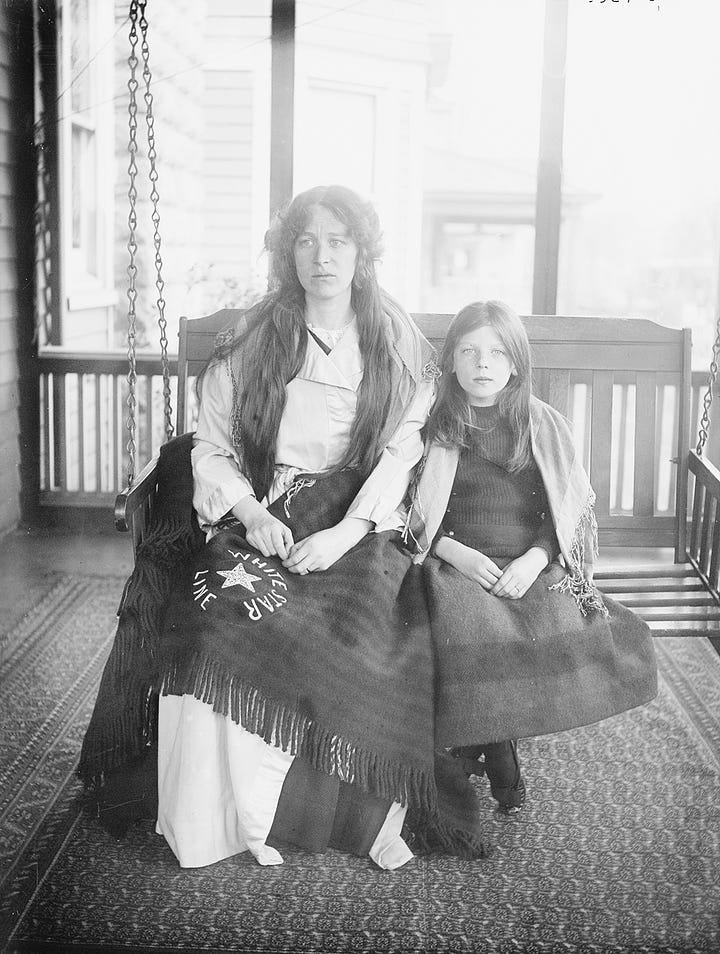
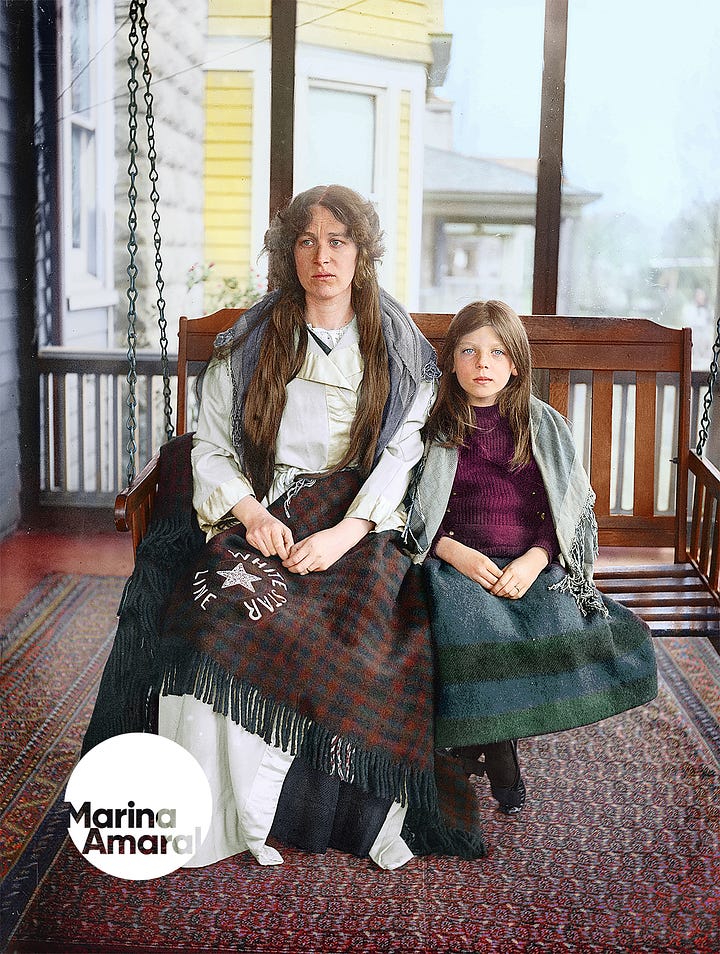
Charlotte remarried in 1914, two years after the tragic loss of her husband. The relentless grip of tuberculosis ultimately claimed her life in 1916. She was just 32 years old.
Marjorie was taken in by her uncle and, in 1927, now a young woman, she married a mechanic from London and settled in Chilworth, Surrey. However, fate had another cruel twist in store: in 1943, her husband died suddenly, at the age of 41. Marjorie was left alone once again.
Throughout her days, she carried with her the lingering presence of the ill-fated ship that had forever marked and changed her life.
She died in a nursing home on 26 February 1965, aged 61.
Thank you so much for reading! Now, which Titanic survivor's journey resonates with you the most, and why? Let me know down here in the comments.






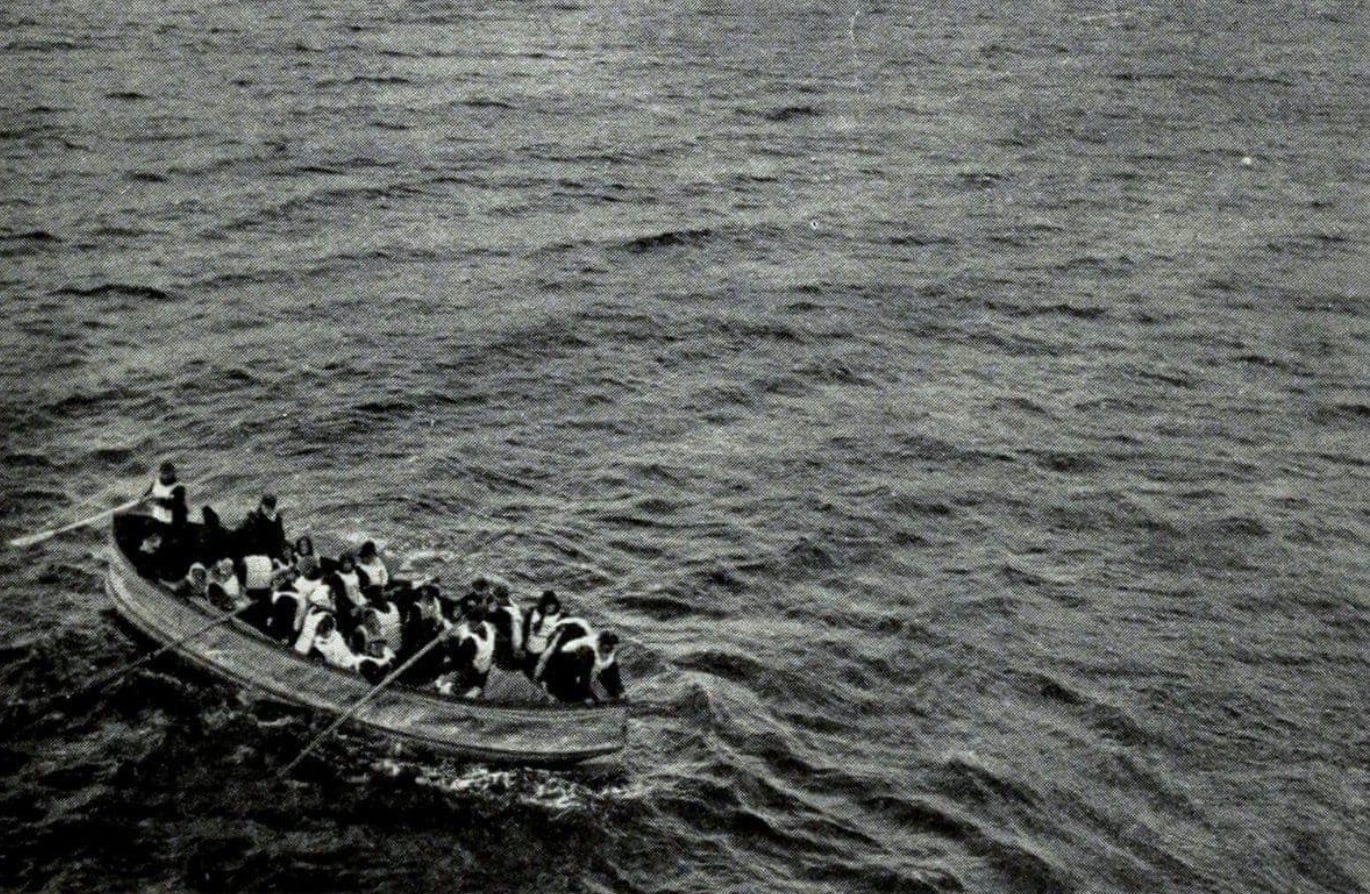


Enjoyed this very much. My grandfather came to the US from Ireland on Carpathia. He was very proud of the fact that a few years later it was the ship that came to the aid of Titanic. I wrote about Punch Romaine recently, the 6th course in first class dining on that last night. Thought you might enjoy!
https://open.substack.com/pub/timetravelkitchen/p/punch-romaine?utm_source=direct&r=jkx01&utm_campaign=post&utm_medium=web
My aunt Katie Gilnagh survived the foundering of the ship. She was 16 years of age traveling to New York in steerage. The story goes that James Farrell from her county. Longford in Ireland was instrumental in making sure she got on a life boat. She stayed in the United States and returned wants to Ireland in our late 60s. On her return airplane ride to the United States the aircraft developed engine trouble, and has landed in Newfoundland. The pilots name was Captain Smith, a coincidence but highly remarkable.